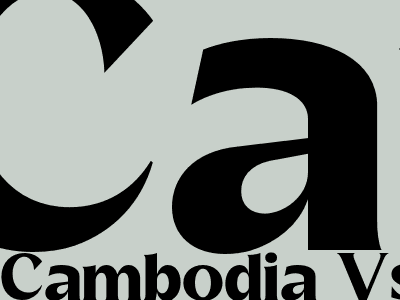
Cambodia Vs Hong Kong
Cambodia vs Hong Kong: A Comparative Analysis
Introduction
Cambodia and Hong Kong are two distinct regions in Southeast Asia with unique histories, cultures, and economic landscapes. While Cambodia is a mainland country with a rich Khmer heritage, Hong Kong is a Special Administrative Region of China with a vibrant international metropolis. This comparative analysis explores the similarities and differences between these two regions, examining their geographical features, economies, political systems, and cultural traditions.
Geographical Comparison
Cambodia is located in mainland Southeast Asia, bordered by Thailand, Laos, Vietnam, and the Gulf of Thailand. It covers an area of approximately 181,035 square kilometers (69,898 square miles). Hong Kong, on the other hand, is situated on the southeastern coast of China, bordering the Guangdong province. It comprises an area of 1,104 square kilometers (426 square miles), including the New Territories, Hong Kong Island, Kowloon Peninsula, and over 200 outlying islands. Both Cambodia and Hong Kong have diverse landscapes. Cambodia is characterized by its lush rainforests, fertile plains, and the iconic Mekong River. In contrast, Hong Kong's terrain is more rugged, with steep hills, granite peaks, and a coastline dotted with picturesque bays and beaches.
Economic Comparison
Cambodia has a developing economy primarily driven by agriculture, tourism, and garments. The country has experienced steady economic growth in recent years, with a GDP of $27.5 billion in 2023. Hong Kong, on the other hand, is a highly developed economic hub with a GDP of $366.1 billion in 2023. It is a global financial center and a major player in international trade and commerce. Cambodia's main exports include rice, textiles, and agricultural products, while Hong Kong's exports are dominated by financial services, professional services, and electronics. Both regions are actively seeking foreign investment and promoting economic diversification.
Political Comparison
Cambodia is a constitutional monarchy with a parliamentary system of government. King Norodom Sihamoni is the head of state, while Prime Minister Hun Sen has been in power since 1985. Hong Kong is a Special Administrative Region of China under the "one country, two systems" principle. It has its own legal system, currency, and a high degree of autonomy in internal affairs. Cambodia is a member of the Association of Southeast Asian Nations (ASEAN) and has close ties with its neighboring countries. Hong Kong, on the other hand, is not a member of any international organizations but maintains strong economic and cultural links with mainland China and other global partners.
Cultural Comparison
Cambodia and Hong Kong have distinct cultural traditions that reflect their unique histories and geographical locations. Cambodia's culture is heavily influenced by its Khmer heritage, which is evident in its architecture, cuisine, and performing arts. The Angkor Wat temple complex, a UNESCO World Heritage Site, is a testament to the country's rich cultural legacy. Hong Kong's culture is a blend of Chinese and Western influences. The city is a melting pot of cultures, with a diverse population of Chinese, foreign expatriates, and ethnic minorities. Cantonese is the most widely spoken language, and the city is renowned for its vibrant culinary scene, which ranges from traditional Cantonese dishes to international cuisine.
Conclusion
Cambodia and Hong Kong, while geographically and culturally distinct, share some commonalities. Both regions are actively pursuing economic development and seeking foreign investment. They also face challenges related to urbanization, inequality, and environmental sustainability. Despite their differences, Cambodia and Hong Kong can learn from each other's experiences and collaborate to address regional issues and promote mutual cooperation.
Comments